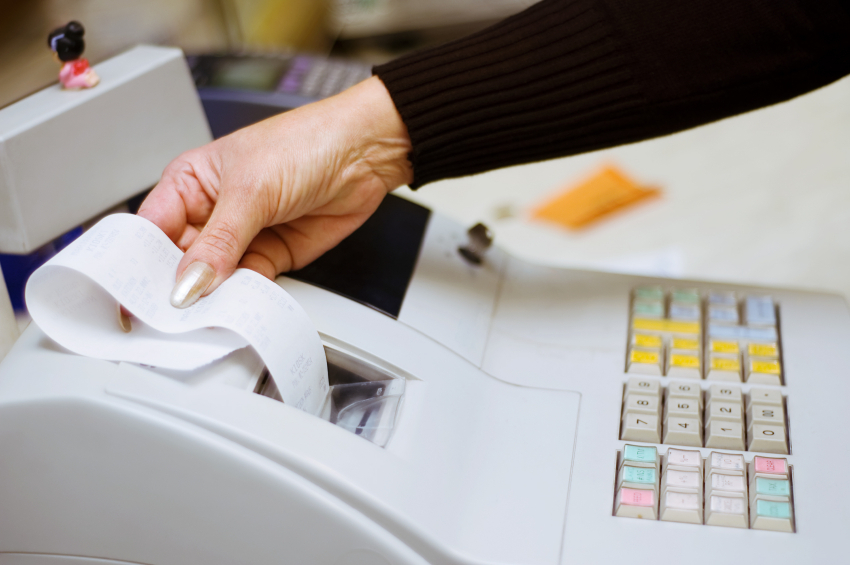Campus dining spots going receipt-free

Receipts will be provided at University Housing and Wisconsin Union dining locations only if a customer requests one or for certain transactions, such as credit card sales.
Photo: iStock
If you’ve eaten at a campus dining center recently, something may have been missing from your order — but perhaps you didn’t even notice.
Beginning this semester, University Housing’s cash registers no longer automatically print receipts for every transaction. The Wisconsin Union is following suit, testing a similar change at select locations that should roll out across campus next week.
“So many people didn’t want their receipts. They would ditch them around the cash register, or they would fly off their tray,” says Julie Luke, associate director of Dining and Culinary Services for University Housing. Now, receipts will be provided only if a customer requests one or for certain transactions, such as credit card sales.
The receipt reduction project is a partnership between University Housing, the Wisconsin Union and the UW–Madison Office of Sustainability, which strives to reduce waste on campus.
It has its roots in an idea sparked by physics Professor Duncan Carlsmith, who grew fed up with all the unwanted receipts he saw printed at campus coffee shops.
“I was thinking, no, thank you! What a waste! Maybe the barista cash register is a great place to send a general message about waste reduction,” Carlsmith says.
Through the Office of Sustainability, Carlsmith connected with undergraduate Rachel Feil, who developed the receipt reduction project through her sustainability internship and as a class project for an environmental studies capstone course before graduating in 2014.
Feil paired up with fellow student Kyla Kaplan, who had noticed the abundance of unneeded receipts as a campus concern while working with the Associated Students of Madison (ASM) Sustainability Committee. Together they reached out to several campus entities, including Housing, the Unions, DoIT, Transportation Services, and the Babcock Dairy Store.
As they learned about each organization’s paper use and customer needs, they decided to focus on the unions and Housing due to transaction volume. Working with Luke and Laura Shere, sustainability coordinator for University Housing, they assessed broader student interest in the issue.
“They really wanted a survey to see if this is really something students are interested in or if this is just a couple of people with a concern,” Kaplan says. They sent out their survey through ASM and garnered the highest response rate of any recent ASM survey.
The survey respondents voted overwhelmingly against paper, with nearly two-thirds saying they would prefer optional receipts and an additional third requesting no receipts at all. Only three percent of respondents favored mandatory receipts.
Many students indicated they used the receipts only for checking their Wiscard account balance. (Under the new program, students can check their balances at the registers or online.)
Kaplan worked with Housing to launch a pilot program in Newell Smith Hall in the 2014-15 academic year. With few exceptions, the pilot went very smoothly, Luke says, and Housing made all registers receipt-optional for standard transactions late this summer. She expects Housing will cut receipt paper expenses by close to 90 percent, saving about $20,000 to $30,000 per year.
The project partners point to other benefits as well, such as eliminating paper litter around terminals and reducing employee and customer exposure to potentially harmful chemicals, such as BPA, found in the thermal paper used to print receipts.
Kaplan says it is a powerful example of the impact that dedicated students can have on campus. “This was a project initiated by students, for students.”
